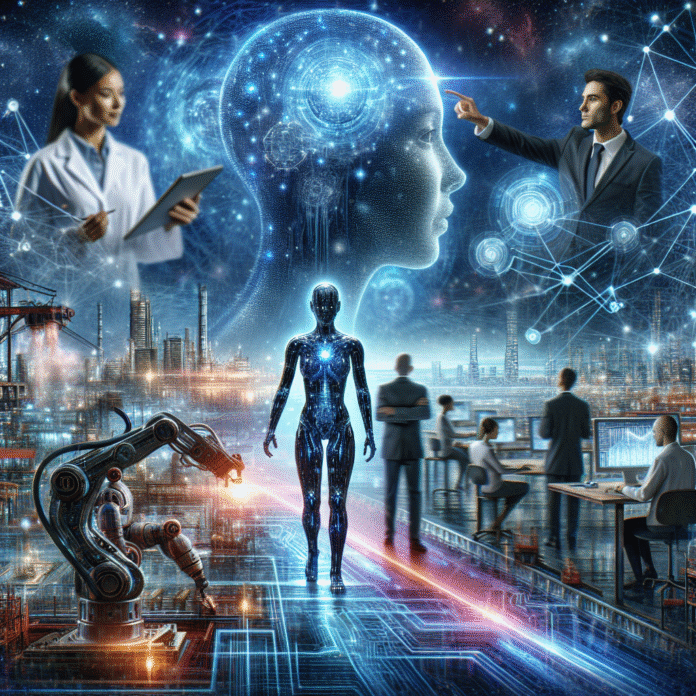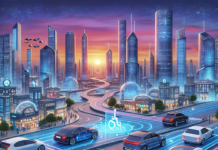The Future is Now: How AI is Reshaping Industries
In the fast-paced world of technological advancement, artificial intelligence (AI) has emerged as a transformative force across various sectors. What was once a concept relegated to science fiction is now a driving force reshaping industries from healthcare to finance and beyond. This article explores how AI is not just a future trend but a present reality, altering the way businesses operate and innovate.
1. AI in Healthcare: Revolutionizing Patient Care
The healthcare industry is one of the most affected by AI advancements. With the ability to analyze vast quantities of data, AI systems assist in diagnosing diseases, predicting patient outcomes, and personalizing treatment plans. For example, machine learning algorithms can identify patterns in medical imaging, highlighting abnormalities that a human eye might miss.
Telemedicine, powered by AI-driven chatbots and virtual assistants, provides patients immediate access to medical advice and consultations. These technologies are improving patient engagement, enhancing outcomes, and reducing operational costs.
2. The Finance Sector: Enhancing Efficiency and Security
In the finance industry, AI algorithms are used for everything from fraud detection to risk assessment and customer service. Machine learning models analyze transaction patterns to identify anomalies and flag fraudulent activities. This real-time detection system is crucial, as financial institutions face increasing cybersecurity threats.
Additionally, robo-advisors, powered by AI, offer personalized investment advice by analyzing market trends and individual financial goals. These technologies democratize financial planning, making investment services accessible to a broader audience.
3. Transportation and Logistics: Smarter Solutions
The transportation sector is experiencing a paradigm shift thanks to AI. Autonomous vehicles are one of the most talked-about advancements, promising to revolutionize personal and commercial transportation. Companies like Tesla and Waymo are pioneering self-driving technology that could reduce accidents caused by human error.
On the logistics front, AI optimizes supply chains by predicting demand, improving inventory management, and streamlining delivery routes. Companies can save money and time, ensuring that goods reach consumers more efficiently.
4. Retail: Personalization and Enhanced Customer Experience
In retail, AI is playing a critical role in crafting personalized shopping experiences. E-commerce platforms employ recommendation engines powered by AI to analyze consumer behavior and suggest products tailored to individual preferences. This level of personalization improves customer satisfaction and drives sales.
Moreover, AI-driven chatbots in the retail sector provide instant customer service, answering queries and assisting shoppers in real time. This not only enhances customer engagement but also allows human staff to focus on more intricate tasks.
5. Manufacturing: Automation and Predictive Maintenance
AI is at the heart of the fourth industrial revolution, enabling smart manufacturing. Automation powered by AI can enhance production efficiency, reduce waste, and ensure quality control. Predictive maintenance, facilitated by AI algorithms, can foresee equipment failures before they occur, thereby minimizing downtime and repair costs.
Manufacturers using AI-powered systems can rapidly adapt to changing market demands, resulting in greater agility and competitiveness.
6. Agriculture: Precision Farming
Agriculture is embracing AI for precision farming, enabling farmers to maximize yield while minimizing resource use. Drones equipped with AI technology monitor crop health, soil conditions, and weather patterns, providing real-time data to farmers. This data-driven approach allows for informed decisions regarding planting, irrigation, and pesticide application.
By optimizing resource usage, AI is contributing to sustainable farming practices that are crucial for addressing global food security challenges.
Conclusion: The Road Ahead
As AI continues to evolve, its ability to reshape industries will only grow stronger. Businesses that embrace AI tools and integrate them into their operations stand to gain a competitive advantage. However, organizations must also navigate the challenges posed by AI, including ethical concerns, data privacy, and workforce displacement.
The future may still hold unpredictable twists and turns, but one thing is clear—the future of commerce, healthcare, transportation, and more is here, and AI is leading the charge. As we continue to harness its potential, we unlock new opportunities and pave the way for a more efficient, innovative, and interconnected world.







